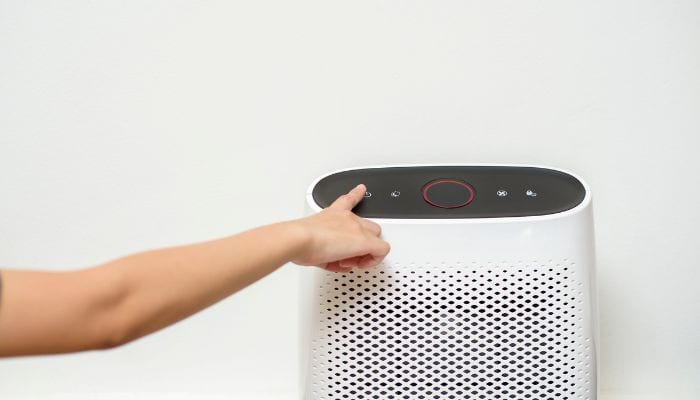You can’t clean up the world on your own, but you can always take steps at home toward a cleaner, healthier planet. Start out by improving the air quality. Ensuring better air in your home helps support and even improve cognitive ability, emotional well-being, and physical performance. Clean air also helps those suffering from asthma, lung disease, and other respiratory conditions. If you’ve wondered how to improve the air quality in your home, learn a few simple tips and tricks to help you and those you love breathe more easily.
Keep It Clean
The benefits of a clean home are numerous. Better organization, less stress, and the general appeal of a tidy home, of course, but a clean home also means cleaner air. Keeping your home dust-free may seem impossible, but wiping away and vacuuming dust can go a long way toward clearing the air. Animal fur and dander are a huge trigger for many folks with respiratory issues, so periodic sweeps with a vacuum are a must.
Check the AC
Cool air in the summer and hot air in the winter may feel pleasant, but furnaces, air conditioning units, and other machines can circulate lung-damaging particles if they’re not kept clean. Learn how often your AC unit should be inspected, and have your HVAC system looked after and cleaned periodically. Almost every system has a filtration system, so mark your calendar for days when the filter should be removed or cleaned. Ask your installer for advice on when and how often to do so.
Air Purifiers
Cleaning and filtering are a good start, but for even purer air, invest in an air purifier. Air purifiers are built to pull particles, smoke, dander, and more from the area and trap them. Purchase a HEPA grade filter and you’ll know your purifier is grabbing as much as 99 percent of the harmful particles filling your home. Some filters even work to keep viruses, bacteria, spores, and fungi from establishing a presence in your home.
Mind the Humidity
Humidity is the measurement of water vapor in the air. Controlling the humidity in your house can lead to various breathing issues. Low humidity dries out the air, which can irritate your eyes, dry out your mucous membranes, and prevent your body from screening out pollutants. High humidity makes it harder to breathe since it’s more difficult to draw oxygen from the air. Find a happy medium by equipping your home with a humidifier, dehumidifier, or both, according to the weather or your home’s conditions.
Hopefully, that answers a few of your questions about how to improve the air quality in your home. Remember, cleaner air leads to a healthier lifestyle!






